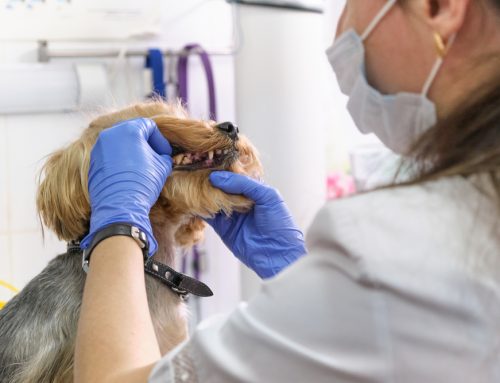As our pets grow older, their needs change significantly. Just like us, they may experience health challenges, reduced mobility, and changes in behavior that require a more tailored approach to their care. Providing the right support can significantly enhance their quality of life, keeping them happy and healthy for as long as possible. At Westerville Veterinary Clinic, we understand the unique challenges of caring for senior pets and are here to help guide you through this journey. Here are seven effective ways to support your senior pet and ensure they enjoy their golden years.
1. Regular Veterinary Checkups
Frequent veterinary checkups are crucial for senior pets. As pets age, they become more susceptible to a variety of health issues such as arthritis, diabetes, kidney disease, and heart conditions. Regular visits allow for early detection of these problems and prompt intervention. During these checkups, your veterinarian can perform a thorough examination, run diagnostic tests, and update vaccinations or parasite prevention as needed. A regular schedule, such as twice-yearly exams, can make a significant difference in catching health issues early.
Routine blood work and urine tests can detect subtle changes in organ function before they become apparent in your pet’s everyday life and routine, allowing for early treatment and potentially extending your pet’s life. If you haven’t scheduled a checkup recently, consider booking one through our Make an Appointment page.
2. Monitor for Signs of Health Issues
It’s essential to stay vigilant for signs that may indicate a health problem in your senior pet. Symptoms such as weight loss, changes in appetite, increased thirst, coughing, difficulty breathing, or unusual behaviors could be early signs of a medical condition. Pets often hide their pain or discomfort, so even subtle changes in their behavior, such as increased restlessness or reluctance to move, should be taken seriously.
For example, a cat that starts drinking more water than usual may be showing signs of kidney disease or diabetes, common issues in older felines. Similarly, a dog that is hesitant to climb stairs or jump onto furniture could be experiencing arthritis pain.
3. Proper Nutrition
As pets age, their metabolism may slow, altering their energy requirements and nutrients needed to support their changing bodies. Although senior diets exist, they are not right for every pet. Evaluate your senior pet’s needs alongside your veterinarian to ensure your pet is eating a balanced diet that also helps them manage their weight, support joint health, and maintain muscle mass. Foods rich in omega-3 fatty acids, antioxidants, and joint supplements like glucosamine and chondroitin can help reduce inflammation and improve mobility.
Additionally, consider providing easily digestible proteins and fibers to maintain healthy digestion. If your pet has specific health conditions, such as diabetes or kidney disease, a prescription diet may be recommended by your veterinarian to help manage or treat these health concerns. Be sure to consult your veterinarian to develop a nutrition plan tailored to your pet’s unique needs.
4. Regular Exercise and Mental Stimulation
Keeping your senior pet physically active and mentally stimulated is essential for their overall well-being. While they may not be as energetic as they once were, regular low-impact exercises can help maintain muscle strength, prevent obesity, and improve mental health. Gentle activities such as short walks, swimming, or playing fetch with a soft toy can provide much-needed physical exercise without putting too much strain on aging joints. Mental stimulation is equally important. Consider using puzzle toys, interactive games, or training sessions to engage your pet’s mind.
5. Comfort at Home
Creating a comfortable living environment is vital for senior pets, especially those with mobility issues or chronic pain. Ensure they have access to soft, supportive bedding that cushions their joints and provides warmth. Placing non-slip mats on slippery floors can help prevent slips and falls, and installing ramps or steps can make it easier for them to reach their favorite comfy spots, such as couches or beds.
Consider the placement of food and water bowls; they should be at a height that is easy for your pet to reach, reducing the need for bending or stretching. For pets with vision or hearing loss, keeping their environment consistent and avoiding rearranging furniture can help them navigate their surroundings with confidence. Small changes at home can make a significant difference in your pet’s comfort and mobility.
6. Pain Management
Chronic pain is common in senior pets, particularly those suffering from arthritis, dental disease, or other degenerative conditions. Managing pain is critical to improving their quality of life. Pain relief options may include non-steroidal anti-inflammatory drugs (NSAIDs), joint supplements containing omega-3’s, and prescription medications. In addition to medication, physical therapy, acupuncture, laser therapy, or massage can provide relief from pain and discomfort.
It is important to work closely with your veterinarian to develop a pain management plan that suits your pet’s specific needs. Regular assessments will help adjust the treatment plan as needed to ensure maximum comfort. For more on pain management options, visit our section on Caring for Senior Pets.
7. Monitor Emotional Wellbeing

Older pets can experience anxiety, depression, or cognitive decline due to changes in their environment, health, or daily routines. Cognitive dysfunction syndrome (CDS) in pets is similar to dementia in humans and can cause confusion, disrupted sleep patterns, and changes in behavior. Keeping their surroundings familiar, maintaining regular schedules, and providing extra attention and affection are vital to their emotional health. If you notice signs of cognitive decline or behavioral changes, consult your veterinarian to discuss potential treatments or lifestyle changes that may benefit your pet.
Conclusion
Supporting your senior pet involves a combination of regular veterinary care, proper nutrition, exercise, pain management, and emotional support. By being proactive and attentive, you can help ensure your pet’s golden years are as comfortable and joyful as possible. Remember, early detection and preventive care are the keys to maintaining your pet’s quality of life. For personalized advice on senior pet care, consider a consultation to assess your senior pet’s quality of life.
At Westerville Veterinary Clinic, our dedicated team is here to help every step of the way. Together, we can ensure that your senior pet receives the best care possible and lives a long, happy and comfortable life.







Leave A Comment